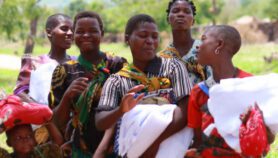Send to a friend
The details you provide on this page will not be used to send unsolicited email, and will not be sold to a 3rd party. See privacy policy.
Below is a round up of news from or about South Asia for the period 3–16 September 2009
Bangladesh scientists make solar pumps with local material
The Renewable Energy Research Centre at Dhaka University has developed a solar pump using locally-available technologies, to help irrigate more land and reduce dependency on diesel- and electricity- driven water pumps in crop fields. The pump will also enable farmers to light their homes at night, when irrigation is not needed on the fields. More>>
India to provide Afghanistan with desalination technology
An Indian desalination technology, developed by the Central Salt and Marine Chemical Research Institute in Ahmedabad, will help supply sweet drinking water to about 50,000 people in Afghanistan by November this year. Afghanistan will receive 11 reverse osmosis desalination plants that covert underground saline water into drinking water. More>>
India’s world first with hardy nanomaterial
Indian scientists have developed the world’s hardest plastic nanocomposite. The material has potential use in missiles and planes. It was made by coating ordinary plastic with nano-diamonds, and a combination of graphene and carbon nanotubes. More>>
Climate change may kill Maldives coral reefs
The Maldives’ coral reef dependent economy is feared to take a hit due to global warming. A UN report ‘The Economics of Ecosystems and Biodiversity’ released in Berlin, says the world’s coral infrastructure and accompanying biodiversity would be the first ecosystem to go because of global warming. "Our whole existence, our livelihood, depends on reefs. It is a human rights issue because it will affect our right to life," says Hussein Zahir, a senior reef ecologist at the Maldives Marine Research Centre. More>>
Natural ebb, tide may save Bangladesh from submerging
Tidal river management (TRM), in which silt is pushed upriver from the Bay of Bengal, may prove useful in raising the ground level and save Bangladesh from sinking. Following the success of pilot projects of the Institute of Water Modelling, five districts of Bangladesh will now adopt TRM and allow silt bearing flood tides to inundate floodplains unhindered, resulting in sedimentation of the land. More>>
Green tax for Maldives waste management
The World Bank will aidthe Maldives in setting up the country’s first integrated solid waste management system to improve public health, limit environmental pollution and protect fragile coral reefs and marine habitats. The Maldives is also planning a US$ three-per-day "green tax" on the 700,000 tourists who travel to the country. The tax would help fund the climate change fight and make the Maldives a carbon-neutral country within the next decade. More>>
China helps Pak fight cotton virus
China is helping Pakistan’s scientists fight a devastating cotton virus that could spell disaster for the latter’s cotton crops. Pakistan’s agricultural research council will also set up plant virology centres to boost plant virus control. More>>
Polyester-making bacteria
Scientists have isolated a bacteria strain from brackish waters, which can churn out a group of chemicals akin to polyester through fermentation. They have optimised the conditions under which the strain can make the chemicals, using dairy waste and salt water as nutrient sources. More>>
Plant stress-busters from mustard
Scientists have isolated a group of genes from mustard, Brassica juncea, which are involved in the plant’s responses to stresses such as salinity. The genes could play an important role in the adaptation of plants to various environmental stresses. More>>
Pakistan law on organ donation
Pakistan’s efforts towards self-sufficiency in organ transplantation have earned praise in a WHO bulletin editorial. The country’s courts recently upheld a new law that bans commercial organ donation, legalises donation from deceased relatives and excludes sale to foreigners unrelated to Pakistanis, and has set up a national authority to oversee transplantation activities in the country. More>>
Compiled by T. V. Padma. Additional reporting by Papri Sri Raman and A.A.Khan
If you would like to suggest a story for this news in brief, please contact the South Asia Regional Coordinator T. V. Padma ([email protected]).













